Content from the Brookings Doha Center is now archived. In September 2021, after 14 years of impactful partnership, Brookings and the Brookings Doha Center announced that they were ending their affiliation. The Brookings Doha Center is now the Middle East Council on Global Affairs, a separate public policy institution based in Qatar.
Iraq’s Kurdistan region will hold a referendum on Kurdish independence next week, which has been met with varying degrees of resistance from both the region and the international community. The international resistance to Kurdish self-determination is not a novel one, and has in fact been a hallmark of the Kurdish national struggle ever since the Kurds were deprived of their own state by imperial powers, which established the nation-state system in the Middle East from the ruins of the Ottoman Empire.
Prevailing state interests, international resistance to upsetting the balance of power in the region, and powerful, resource-rich armed forces at the disposal of the region’s (Western-aligned) autocrats made it implausible for the Kurds to redraw the map of the Middle East. That paved the way for a century’s worth of rebellions, countless atrocities, and genocide against the Kurds.
Yet, the Kurdish national liberation project in Iraq survived. Its survival stems in large part from the persecution the Kurds have suffered, which has strengthened the unifying thread of Kurdish nationalism and the morally and intellectually resilient cause of Kurdish self-determination. Its survival is also due to geopolitics and a regional order that became beset with constant instability and conflict, opening up opportunities for external patronage and the development of personal and institutional ties with regional powers.
The Kurds: A recent history
The Kurds–who have been victims of dictatorship, human rights abuses, and systematic displacement, particularly under the Baath Party in Iraq, which killed scores of Kurds in the Halabja genocide and the wider al-Anfal operation–have championed their cause as one of the right to self-determination. This helped guarantee international recognition and legitimacy, and enabled a trajectory that has since moved them closer toward sovereignty. After Saddam Hussein’s overreach and miscalculated invasions of Iran and Kuwait in the 1980s and in 1990, the Kurds were in a way rewarded: Having forced the Iraqi military out of Kuwait, the international community imposed a no-fly zone in northern Iraq to protect the Kurds. However, they also became their own enemies when civil war engulfed Iraqi Kurdistan in 1994, just two years after elections were held in the autonomous region and under the protection of the no-fly zone.
The civil war had costly political and humanitarian consequences, resulting in separately administered territories by the ruling Kurdistan Democratic Party (KDP) and Patriotic Union of Kurdistan (PUK). But Kurdistan remained intact. Regional powers did their best to undermine and destabilize the de-facto state, both before and after civil conflict, but this did not get them very far. Despite being better positioned than they are today, their threats to militarily eliminate Kurdistan never materialized.
Indeed, the four-year civil war should have signaled the end of the Kurdish state-building project, but it has proven resilient. Both commentators and policymakers in the West have historically disparaged the Kurds for their internal divisions, claiming they are incapable of self-governance and independence. But this is a demeaning, orientalist argument that colonial and regional powers have long used to suppress the legitimacy of Kurdish self-determination. It has not only proven ill-conceived, but fails to appreciate both the resilience of Kurdish state-building (which comes from a long history of pursuing statehood) and the nuances of Kurdish politics and socio-cultural dynamics.
Political division and unity
The KDP and PUK still have differences, but both were born from the Kurdish national movement. Both President Masoud Barzani (head of the KDP and son of the legendary Mullah Mustafa Barzani) and Jalal Talabani (the founder of the PUK, who is affectionately referred to by Kurds as Mam [uncle] Jalal) are Kurdish nationalists at their core. They perceive themselves and their parties as state-builders that strive for a Kurdish state.
These parties’ forced coexistence has actually reinforced the resilience of the Kurdish de-facto state because they have needed to compromise. This political outlook and maturity helped the Kurds achieve the status of a democratic success story. While Kurdish politics and governance has been beset with corruption, poor governance, and nepotism, the Kurdish leadership spoke the language of pluralism and human rights and have strived to position their de-facto state in accordance with international norms in an effort to acquire international recognition and legitimacy. Even as far back as 2002, and in spite of divisions at the time between the KDP and PUK, the European Parliament endorsed the democratic experiment in Kurdistan for the first time.
In the same vein, the political outlook and consciousness of the 1990s ensured the Kurdish state-building project remained resilient after 2003 amid a series of additional challenges that followed the toppling of the Baath regime. This was in stark contrast to the groups that entered Baghdad from many decades of exile and took control of the Iraqi state. The Kurds not only had a more mature political process and a unifying thread, but also experience governing under two separately administered territories. Unlike the rest of Iraq and the experience of Baghdad’s main parties after 2003, the two separately administered territories under PUK and KDP control during the 1990s provided the two parties with a prolonged period of governance that was not disrupted by personal and party-based rivalries.
The outlook for Kurdistan
Internationally, Kurdistan’s resilience has been helped by a combination of sheer perseverance and luck. The Kurds were helped by the international, particularly American, commitment to toppling the Baath regime after 9/11, ensuring that there was both a moral and strategic imperative to sustaining the Kurdish de-facto state.
In the Middle East today, there has been a breakdown of state institutions and a growth in ungoverned spaces. In those spaces, anti-Western militias and jihadi terrorists have become predominant wielders of power and authority. This reality suggests that if Kurdistan declares independence, the United States is unlikely to abandon it, as that would allow America’s enemies in the region to step in and fill the resulting gap by either destabilizing Kurdistan (and the region) or, alternatively, by expanding their own ties and influence over the Kurdish political landscape. Washington has learned painful lessons from its 2011 withdrawal from Iraq and Iran’s resulting dominance in Iraq and the region.
That does not mean Iraq’s Kurds can be complacent. Domestically, there are still divisions and jockeying over resources and power, as well as public dissatisfaction over services, corruption, bureaucracy, and nepotism. The failure to remedy divisions could exacerbate social discontent and polarization. Since its establishment, the opposition group Gorran has shown a capacity to disrupt Kurdish politics and stability in Kurdistan, meaning the party could also potentially constitute a spoiler for Kurdish independence, its own internal problems notwithstanding.
However, the political climate in Kurdistan is a fluid and dynamic one, as evidenced by Gorran’s own factionalism, which has prevented the party from living up to its aspirations to become a viable opposition. Gorran’s emergence has actually forced a revision of politics in Kurdistan, requiring both main parties to rethink their interactions with the electorate, which has, in turn, enhanced the robustness of Kurdistan’s political system.
The problem for the Kurdish state-building project is not so much the divisions between and among the parties, but rather the multiple centers of power that have emerged over the past 20 years, particularly as a result of the factionalism within Gorran and the PUK. As such, it could fall on the KDP (whose organization and ability to keep internal disputes “in-house” has given it a competitive advantage) to not only ensure its own political competiveness in the coming years, but also to manage and mediate the internal politics of its rivals to move Kurdistan toward independence, post-referendum.
The Brookings Institution is committed to quality, independence, and impact.
We are supported by a diverse array of funders. In line with our values and policies, each Brookings publication represents the sole views of its author(s).


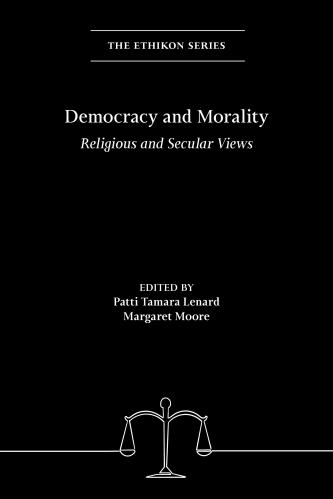
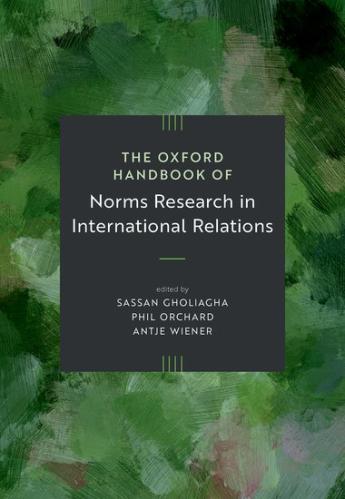
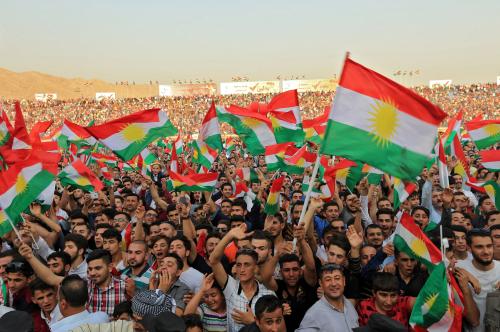
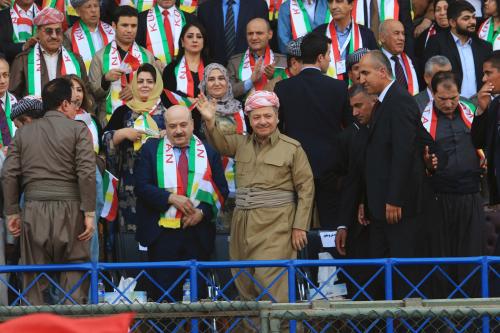
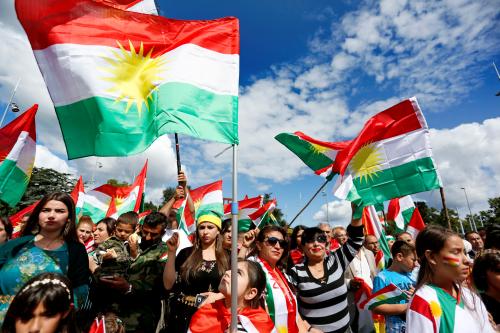
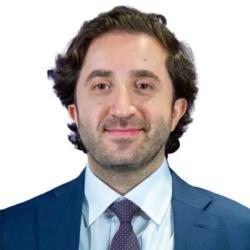
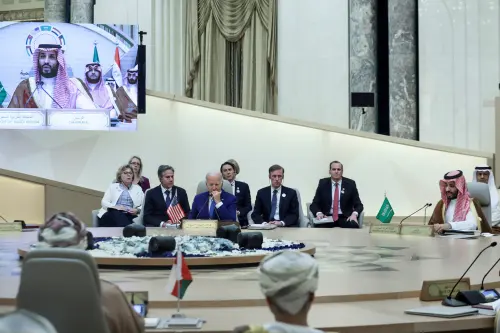
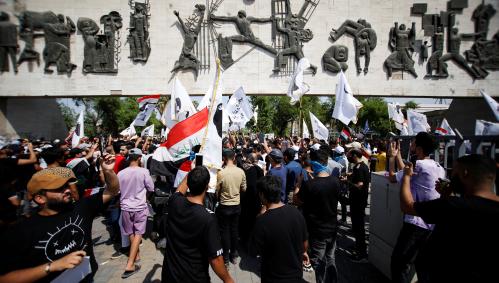
Commentary
Don’t underestimate Kurdistan’s resilience
September 22, 2017